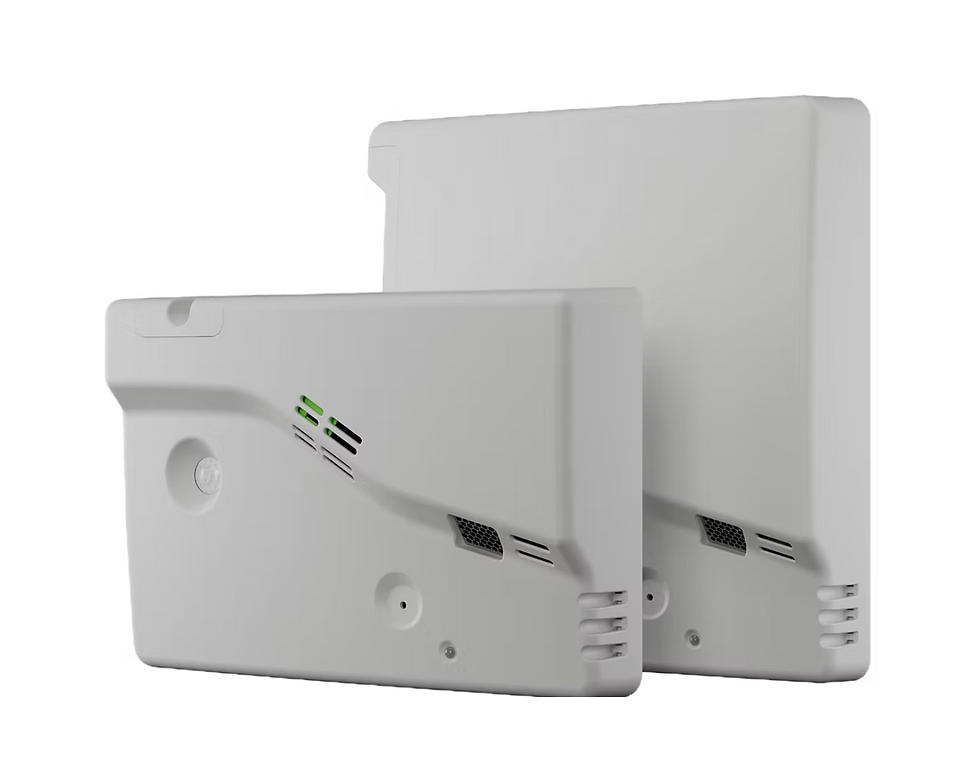Zeptive’s Technology a Finalist in the Massachusetts COVID-19 Health & Safety Challenge
- Steve Milt
- Nov 2, 2020
- 3 min read
Updated: Dec 21, 2020
FOR RELEASE ON: October 29, 2020
CONTACT INFORMATION: Steve Milt, Chief Marketing Officer Zeptive, Inc. 781-572-7724 [email protected]
Customizable Device Helps Schools to Improve Student Health and Indoor Air Quality Amidst COVID-19 Pandemic
[BURLINGTON, MASS.] – While it may seem mundane, the quality of the indoor air we breathe affects our health now more than ever as we navigate how to bring people back together during the COVID-19 pandemic. Schools, in particular, remain challenged in providing safe indoor air to students and often fly blind as to where to focus their limited resources to address this issue – until now.
Zeptive’s innovative air health monitoring system offers schools a tangible way to continuously examine and improve their ventilation systems. It measures key indicators of good ventilation, like carbon dioxide (CO2) levels and air particle filtration, in each room and provides real-time metrics to users. Quality ventilation has many benefits – it decreases the risk of transmitting airborne viruses like COVID-19 and has been shown to improve student performance and attendance.
“Schools are investing a lot of money to upgrade their heating, ventilation, and air conditioning (HVAC) systems, and yet they do not have a way to measure their effectiveness,” says Will Hargett, Zeptive’s chief executive officer. “During this time, we know many schools feel like they are working in the dark, trying to figure out what to do next. That is why we created this product to essentially serve as their flashlight.”
Zeptive is an IoT sensing business focused on safety, security and public health sensing applications. Its air health monitoring system uses advanced sensors that can be moved from room to room to identify areas of concern with ventilation. Before COVID-19 swept the U.S., Zeptive focused exclusively on using these sensors to detect when students were vaping nicotine or marijuana in schools.
The sensor already had a particle counter to look for droplets in the air, so the particle counter was easily modified to measure efficiency of filtration in school ventilation systems. Zeptive then added a carbon dioxide sensor to use as a measure of how well the ventilation system works. Zeptive’s air quality monitoring system checks which areas of buildings have acceptable air filtration, and which do not. Cindy Bistany, chief technology officer said, “We made our sensor customizable and able to detect many things to meet our customers’ changing concerns. Our main mission now is to give people an easy-to-use tool to monitor airflow and filtration.”
Zeptive is one of eight Massachusetts-based companies selected as a finalist for the Massachusetts COVID-19 Health & Safety Challenge sponsored by MassTech and Lever, designed to identify and grow innovations to slow the spread of COVID-19. The challenge concludes October 30, where one grand prize winner receives $25,000 to advance their product’s development.
While Zeptive’s sensors do not specifically detect COVID-19 in the air, the company’s latest product does offer a measurable link between air quality, filtration, and the risks posed to public health. “We have reached a tipping point of public health awareness where people are not going to go back to thinking that a stuffy room is meaningless,” says Bistany. “Whether it is the flu, or the common cold, or some future serious disease beyond COVID-19, having an awareness of air quality and safety in these spaces is paramount.”
For more information, visit zeptive.com.
pdf:



Comments